What's going on? You've taken your body literally outside your comfort zone.
These high-mileage symptoms should subside when you return to your regularly scheduled programming, but if they don't, see your doctor stat. (Or maybe talk to your doctor anyway. No article is a substitute for medical attention, right?)
In the meantime, here's a look at why these weird things are happening to you.
1. Night Sweats
1 of 8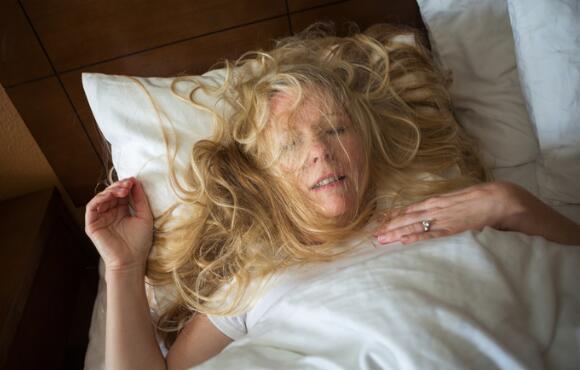
What's happening: You sweat bullets at night, And you're not a menopausal woman!
Why: Exercise revs your metabolism, and it doesn't stop when you're done with your tempo run. You've probably heard exercise right before bed makes it hard to sleep and for good reason. A 2011 study out of Appalachian State showed that metabolism hums up to 14 hours after a hard workout. Your brain's response is to try to cool you off, even while you rest, hence the night sweats.
Increasing your routine—whether you're going from couch to 5K or marathon training, commonly triggers this reaction, and goes away once your body gets accustomed to your new normal.
Find:
Your Next Race2. Stomach Problems
2 of 8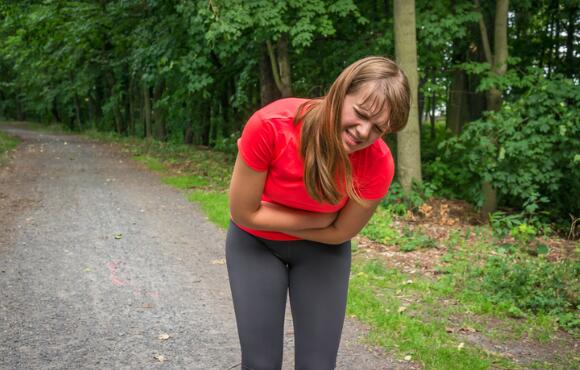
What's happening: Your belly rejects wheat bread, broccoli and other healthy foods you used to have zero problem with.
Why: When you up your mileage, you may find your super-healthy diet of salad, lentils and sprouted-grain bread makes you feel like you've been punched in the gut with systems like bloating, gas and cramps coming out in full-force. The likely culprit? Fiber. It slows your digestive process, which is good news for getting nutrients and feeling full, but bad news for a body stressed by the effort of a long or hard training run, says Lisa Dorfman, MS, a board-certified dietician known as The Running Nutritionist.
Don't feel guilty about eating white bread during your mega-mileage month or the days before your race. You'll want to avoid other gas-inducers like broccoli and bean burritos, too. "I call it the flu diet," Dorfman says. "You want something calming for your gut." Bring the fiber back in when your race is in the record books.
Find:
Your Next Race3. Nasty Cough
3 of 8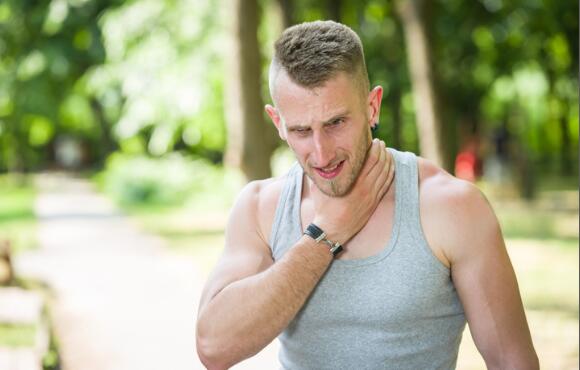
What's happening: After a hard run in the cold, you cough, cough, cough until you feel like your lungs may burst.
Why: Cold, dry air irritates your airways, which constrict and narrow in response. When you're pushing to race across the finish of a 10K on a 32-degree day, you're breathing faster and harder, which forces your lungs and air passages to deal with a lot of cold air quickly and can cause a fit of coughing that lasts for hours. You may even have a condition called exercise-induced bronchoconstriction (formerly known as exercise-induced asthma). A thorough warm-up, or taking the first few miles easy, may help, as will a scarf around your mouth to add a little humidity and warmth to your inhalations.
Hot tea afterward will help relieve your cough, according to a study from the Common Cold Centre at Cardiff University in the U.K.
Find:
Your Next Race4. Super Chill
4 of 8
What's happening: If you don't immediately take off your wet sports bra or shirt after a run, you feel like you might actually freeze to death, and your fingers turn white!
Why: Running increases your circulation, which warms up your body and causes you to sweat to regulate your temperature. When you stop running, your circulation slows, your temperature drops and your favorite high-tech sports bra or wicking tee holds sweat against your core. Even on a warm day, you can quickly get too cold and even develop hypothermia. A slowed circulation can cause fingers and toes to turn white, which may be a symptom of Raynaud's disease (ask your doctor, remember?).
The simple solution is to get out of wet gear as soon as possible. Check a bag of head-to-toe dry clothes at your next race (if gear check is offered) or stash dry gear in your car. Women: pack an XL T-shirt so you can wiggle out of your sports bra underneath.
Find:
Your Next Race5. Vision Oddities
5 of 8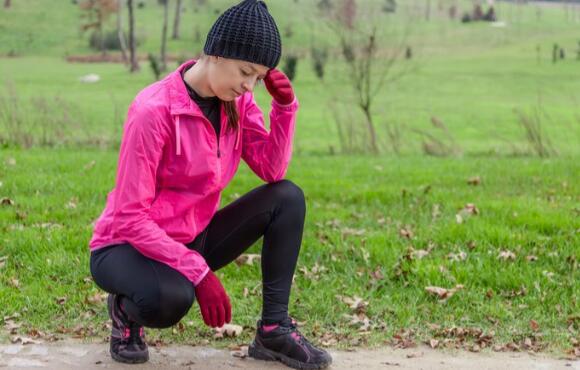
What's happening: You see weird flashing spots, which may be accompanied by a headache.
Why: After a long or hard run, do you sometimes see zig-zagging flashing spots in your peripheral vision, like the after effects of a flashbulb? That may be a migraine aura, which is caused by dehydration, stress and fatigue—otherwise known as side effects of a 20 miler—and which you may experience even if you never get a classic migraine headache (lucky you).
In one study of people who suffer repeated migraines, 38 percent experienced exercise-triggered migraine attacks. Proper hydration and prompt replenishment of electrolytes, via bananas, coconut water or your favorite sports drink, helps prevent and ease symptoms. Though scientifically unproven, some people (okay, my mother) swear by pickle juice. If you get migraines regularly, you likely have your own pain protocol, which you should follow at the first sign of attack.
Find:
Your Next Race6. Missing Period
6 of 8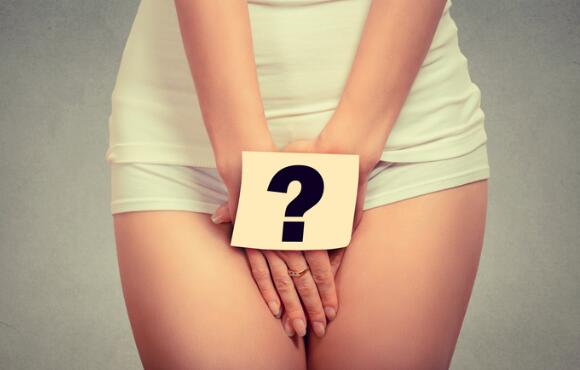
What's happening: Your normally normal period goes AWOL (and then reappears the morning of your race, because of course).
Why: Missing your period when you increase your mileage is not uncommon among runners. You may be burning more calories than you eat, you most likely are losing fat, your hormones get out of whack and your body goes into self-protection mode, shutting down non-vital functions like menstruation. Long term, exercise-induced amenorrhea can have serious consequences, like increased risk of osteoporosis and reproductive difficulty. Talk to your gynecologist at your annual appointment if you have concerns.
Your pre-race taper—reducing mileage, eating a healthy diet, getting plenty of sleep—may bring your body back to your "normal," which is why you get your period... on race morning! Pack supplies in your gear bag, just in case.
Find:
Your Next Race7. Low Libido
7 of 8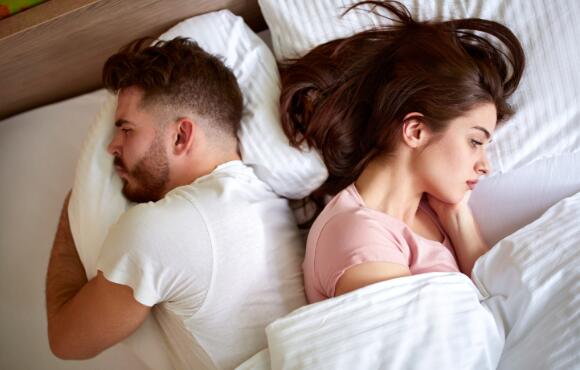
What's happening: You find yourself saying, "Not tonight, I'm too tired," and even wondering about that little blue pill.
Why? Running usually makes you feel like a stud, but marathon training may make you want to go to bed only to... sleep. It's not just you. A recent University of North Carolina study of over 1,000 active men found that the guys who exercised the hardest and the longest reported the lowest libidos.
An intense running routine makes you more tired physically and mentally, plus it may also suppress your testosterone. The triathletes, runners and cyclists in the UNC study worked out up to 10 hours a week. When you cut back after race day, you'll probably be less exhausted and ready for action again.
Find:
Your Next RaceGet ACTIVE on the Go


Couch to 5K®
The best way to get new runners off the couch and across the finish line of their first 5K.
Available for iOS | Android
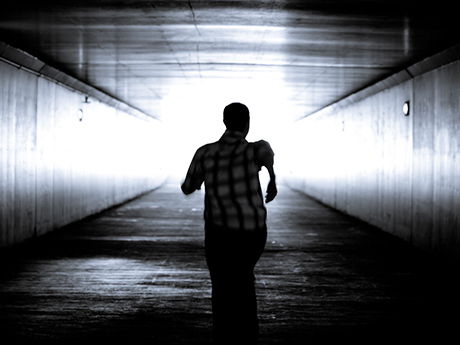
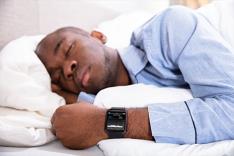




Discuss This Article